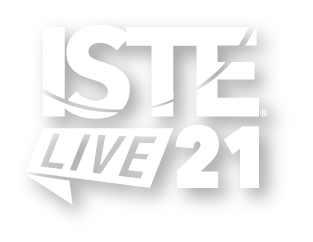

K-12 Esports: The Good, the Bad, the Ugly, and the Resources |
Listen and learn : Lecture
Bubba Gaeddert Kailey Rhodes
Esports offer our students the opportunity to belong to a team, perhaps for the first time. So what’s stopping schools? The answer: very legitimate concerns. We'll walk through the strongest pros and cons you'll face, and provide starting points for teachers and schools to mindfully begin their esports journey.
| Audience: | Coaches, Curriculum/district specialists, Technology coordinators/facilitators |
| Skill level: | Beginner |
| Attendee devices: | Devices useful |
| Attendee device specification: | Smartphone: Android, iOS, Windows Laptop: Chromebook, Mac, PC Tablet: Android, iOS, Windows |
| Topic: | Games for learning & gamification |
| Grade level: | 6-12 |
| Subject area: | Computer science |
| ISTE Standards: | For Educators: Leader
|
We’ve all heard the reasons folks don’t want to bring esports to their school, and they are valid reasons. And we aren’t here to “win” with brilliant counter-arguments! We’re here to present the pros, the cons, and how to accommodate BOTH realities on your school’s esports team.
We are obviously “pro esports”! We believe esports offer our students the opportunity to belong to a team, perhaps for the first time. Esports teams provide an opportunity for students of all ages, abilities, gender expressions, and backgrounds to come together and learn teamwork, communication, cooperation, encouragement, and accountability.
So what’s stopping schools? The answer: very legitimate concerns. We will walk through the strongest pros and cons to having a team, and provide starting points for teachers and schools to mindfully begin their esports journey.
Introduction (5-10 mins)
- What are Esports? An accessible definition
- Background on esports as an industry and what it looks like in schools
- Audio/Visual aids
The Pros and the Cons of Esports (20 mins)
- What are some main concerns against esports, and why are they valid?
- Why should your school have an esports team anyway?
- Resources to address issues, if and when they arise
Pros:
Increased student belonging and buy-in
Transforming a solitary activity to a team sport (with all the requirements of a school team, like GPA!)
Cross-curricular connection, like business strategy, physics, and others
STEM / STEAM learning
Career opportunities
Cons:
Toxicity & Cyberbullying online? Resource!
Violence in games? Resource!
Addiction? Resource!
Screen Time? Resource!
Mental Health? Resource!
Getting Started in Your School (15 mins)
- Overview of recommended resources
- How to talk to parents about esports
- How to set up an interested teacher for success as an esports coach
- How to capitalize on interested students
Questions & Discussion (10 mins)
- What questions are you burning to ask?
- What do you feel you need a resource for? We will look for it!
Closing (5 mins)
- A first step to getting started? Survey your students
- What to watch and follow for ongoing information in the world of esports
White Paper: Leagues of Learning: The Rising Tide of Esports in Education https://www.k12blueprint.com/sites/default/files/Intel-Esports-in-Education-19Dec2019.pdf


As a middle school teacher, Kailey is passionate about pursuing educational solutions that keep students at the forefront of their learning experience. She believes esports are the future, and we only do a disservice to the students we serve by denying an exciting new way for them to belong. Kailey teaches 6th grade mathematics at a nearby arts school, where students spend just as much time in academic subjects as arts classes. Her involvement in Portland's theatre scene permits a deeper level of engagement with students as they explore where these two worlds intersect.